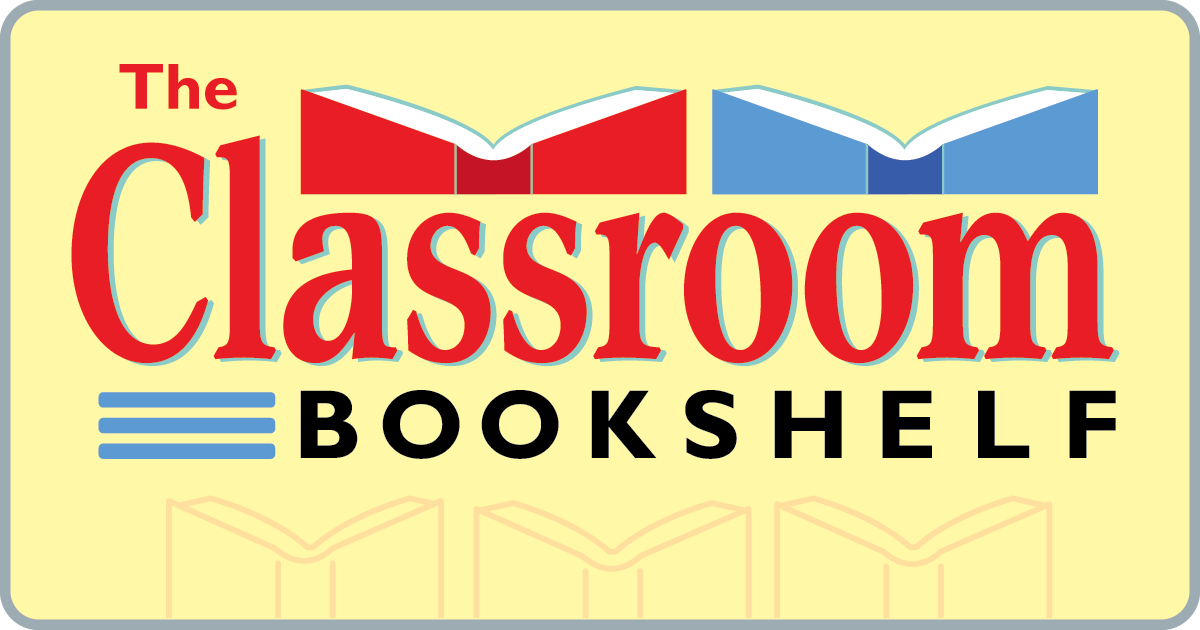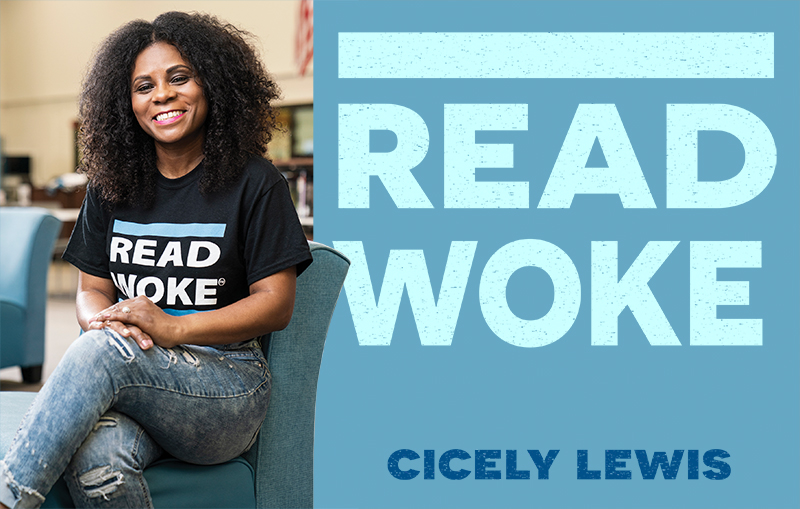Merci Suárez Changes Gears
By Meg Medina
Published by Candlewick Press, 2018
ISBN: 978-0-7636-9049-6
Grades 4-7
Book Review
During the fall of her sixth grade year, Merci Suárez faces a range of challenges. Instead of trying out for the school soccer team now that she is eligible, she must spend the autumn watching her twin cousins after school. Instead of feeling more comfortable with her friends in her second year at Seaward Pines Academy, she more feels more frequently pushed to the margins by “queen bee” Edna Santos. Instead of having a girl as her Sunshine buddy, she has the new white boy from Minnesota, Michael Clark. Instead of taking her regular Sunday morning bike rides with her grandfather Lolo to El Caribe bakery, to bring back breads and treats for Sunday supper, she finds that Lolo is unable to stay balanced on his bike. Merci and her extended family live in Las Casitas (the little houses), three interconnected homes in a coastal city in Southern Florida. It is the changes that impact Las Casitas, and all who reside there, that worry Merci the most. Medina’s beautiful prose is effortlessly punctuated with Spanish words and infused with Cuban-American culture. Merci’s school and community is diverse, and considerations of race, class, and ethnicity flow naturally throughout the book, from family food to parenting to how one moves one’s body around the police. As a result of her challenges, Merci learns to live with life’s expected and unexpected changes. “I don’t know what is going to happen next year, no one does. But that’s OK. I can handle it, I decide. It’s just a harder gear, and I am ready. All I have to do is take a deep breath and ride.” For whole class and small group reads, and for individual tweens looking for ways to navigate their own difficult rides, this beautiful novel is ripe for exploration.
Teaching Ideas and Invitations
Power in Tween Social Groups. Throughout the novel, Edna Santos seems to be in charge of the girls in Merci’s classes. Edna drives discussions in class and sets the tone for the other girls’ behaviors in the hallways, the cafeteria, and outside. How did she get that power? Who gave it to her? Why are the other kids so happy when she is finally punished for destroying Michael’s mask, made by Merci’s grandmother? As you read the novel together, have your students explore the intersection of power and “popularity.” When the novel is complete, have your students create a set of guiding principles for sharing power in your classroom, and on the playground, and in the cafeteria. This novel could be paired with last week’s entry, You Go First, for a deeper exploration of power and popularity in middle school.
ADVERTISEMENT
ADVERTISEMENT
Gender-Based Friendships. Why was it so hard for Merci to act friendly towards Michael, let alone be friends with Michael? What happens to boys and girls when they hit the tween years? Who are your students friends with? Who do they play with at home? How do those relationships change at school? Is it hard for your students to have male-female friendships without other kids framing them as romantic? What are the implications for students who are transgender or gender fluid? Have students talk about this in small groups and bring it to a large group. Your small groups could be gender-based or mixed, with sensitivity to those students who may be gender fluid. As a result of these conversations, have your students create a Tween Friendship Guide that can be shared in your school counselor’s office and the school library.
Exploring the Ancient World. Channel your own inner Ms. Tannenbaum, and have your students explore Ancient Egypt following some of the marvelous project-based learning strategies that Ms. Tannenbaum uses in the novel. If you are not the social studies teacher at your grade level, time the reading of this novel to coincide with that class’s study of Ancient Egypt, and support the exploration with language arts activities such as writing and research. If students don’t study the ancient world at your grade level in your school or district, find a way to add it to your curriculum this year! To start, use some of the digital resources listed below in Further Explorations.
Establishing a Sense of Place in Fiction. Medina realizes that not all of her readers are familiar with the climate in Florida, as evidenced by her various descriptions. In Chapter 9, Merci notes that Ms. Tannenbaum’s bulletin board is “newly decorated with fake fall leaves to remind us we’re in September” (p. 1211). At the start of Chapter 20, Merci says, “Autumn in Florida isn’t the way you see in books, with people bundled up and colorful leaves blowing off trees in the wind. It happens in small ways that most people can barely notice. The heat starts to break, so we eat dinner on the patio.” In late December in Chapter 38, “Papi and Lolo have strung the patio with red and green lights in the shape of chili peppers,” and “Mami blasts happy Christmas music — and not the ‘I’m dreaming-of-a-white-Christmas’ kind” (p. 347). In intentionally providing these sensory details, Media is simultaneously pointing out to readers that many of the dominant narratives in children’s books follow a Northern-centric approach to the seasons. Use this as an opportunity for students to go back into their favorite books. Where are the books set? How are the seasons and climates described? Do the authors write with an assumption that students will know and understand what the season looks and feels like? Could that assumption based on the fact that so many children’s book publishers are based in the Northeastern United States?
Exploring the Tween Years Text Set. Offer students the opportunity to read contemporary novels about tweens confronting the challenges of middle school. Students can read Merci Suárez Changes Gears along with other novels such as You Go First and Hello, Universe, both by Erin Entrada Kelly, The Way to Bea by Kat Yeh, The Seventh Wish by Kate Messmer, Fish in a Tree by Linda Mullay Hunt, Goodbye Stranger by Rebecca Stead, and Booked by Kwame Alexander. After students have the chance to share their responses to the novels and compare and contrast characters and conflicts, support them in writing their own original short stories set in middle school.
Growing Fiction. Merci and her family first appear in Flying Lessons, a short story collection edited by Ellen Oh. Have your students read the short story “Sol Painting, Inc.” after they read the novel. What seeds for the larger story do they see in the short story? What feels similar? What feels different? What writing lessons can they tease out about how to grow a short piece of fiction into a longer piece of fiction?
Foreshadowing: Dropping Clues in Fiction. The reader may realize that someone is wrong with Lolo before Merci does. How does Meg Medina drop clues about Lolo’s Alzheimer’s throughout the novel? Have your students track those clues throughout the novel, and use the novel as a mentor text for their own fiction writing.
Metaphors in Fiction. The title of the story ultimately serves as a metaphor for Merci’s character. Merci has been saving up for a new bike throughout the novel. At the novel’s conclusion, her extended family gives her a new bike for Christmas. As Merci rides her new bike, she shifts and changes gears and thinks about the changes that have happened and the changes that lie ahead. Have your students consider what elements in their current fiction writing they can turn into metaphors. What hobby or interest does a character have that could be developed into a metaphor?
Shared Hobbies. Throughout the novel, we watch Merci enjoying hobbies and rituals with her family members. Sunday mornings, Merci and Lolo are riding their bikes to the bakery to bring back goodies for their Sunday afternoon meal. Merci loves painting with Lolo and Papi, and she never gives up an opportunity to play soccer with Papi and the other men on his team. We see her brother Roli bonding with her mother about the brain, the human body, and how things work in the natural world. Tia Inez and Abuela bond over clothes and Abuela’s magical ability to transform pieces of fabric into works of art. What hobbies do your students enjoy, and what role does an older family member or neighbor play in fostering that hobby? What hobbies do they share in common? Host a family-community maker-festival in your classroom, organizing families by hobby or skill, or simply invite a family member in once a week to share a hobby. When possible connect these skills and hobbies to your ongoing classroom work, such as when Abuela helps with Michael’s costume, or Merci brings in paint for the pyramid and buttons for the clay map.
ADVERTISEMENT
ADVERTISEMENT
Found Poetry About Loss and Change. Throughout the novel, Merci is grappling with the changes that are taking place in her family and school life. When you and your students have completed the novel (either as a whole class read aloud or whole class read) assign pairs of students two or three chapters to review. As students dip back into the book, have them pull out sentences that discuss loss or change. Have them list these sentences in a Google doc to which the whole class has access. Have students draw from different lines to pull words and phrases to rearrange into original found poems. Students can read aloud their found poems.
Critical Literacy
Understanding of and Advocacy about Alzheimer’s. Some students in your class may have first-hand family experience with Alzheimer’s. Some students in your class may not have heard of the disease before reading this novel. After completing the book, make sure students read “A Note from the Author” in the back. Provide students the opportunity to explore some of the sources below, including the Alzheimer’s Association, shared by Medina. After students have learned more about the disease, its symptoms, and the available treatments to delay its impact, have them think of a service learning project that they can do to either better inform people about the early symptoms of Alzheimer’s, or ways that they can support community members and their families who may be coping with the disease.
Addressing Problems in Your Community. In the novel, Merci’s mother won’t let her try out for the soccer team, despite Merci’s love of the game, strong skills, and commitment to practice. Instead, Merci has to watch her twin cousins because it is no longer possible for her grandparents to due so. What responsibilities do your students have at home? What kind of relief could be provided for them? On page 342, Merci shares that Hannah is going to babysit the twins so that Merci could possibly try out for softball in the spring. She, Lena, and Hannah are going to start a new volunteer club at school to bring students to the Lourdes Killington Residence, to make matches between potentially lonely seniors and young people without nearby extended family. Have your students identify community needs as well as some of the challenges that they face in fully participating in activities in or outside of school. Have them come up with a plan (or more) to help create change and bring different parts of your community together.
Grade 7
Race, Class, and Pressure in Independent Schools. Within the first few pages of the novel, we find out that Merci and the Suárez family paint parts of the school over the summer in exchange for the books she and her brother Roli need during the academic year. Merci’s father reminds her that they need the school to “know we’re serious people” (p. 5). This reminder recurs throughout the book, particularly when Merci is in trouble with the front office or having problems with her friends. This puts a tremendous pressure on Merci, who sometimes longs for the simplicity of her previous, and presumably public, elementary school. Whether you teach in an independent, public, or religious school setting, how do the populations of your school compare and contrast to the student populations of other schools around you? What can you learn by exploring each school’s website? What identities does each school construct on its website? What are the implications?
Further Explorations
Online Resources
Five Questions (Plus One!) for Meg Medina, Candlewick Press, 2016
2016 Reading Rockets Interview with Meg Medina
2014 Meg Medina Appearance at the National Book Festival, Library of Congress
National Institute on Aging, NIH, Alzheimer’s Disease Fact Sheet
Ancient Egypt, The British Museum
Life in Ancient Egypt, The British Museum
Egyptian Art, The Metropolitan Museum of Art
Beyond the Nile: Egypt and the Classical World, The Getty Museum
Egyptian Art, The Museum of Fine Arts
Books
Booked by Kwame Alexander
Fish in a Tree by Linda Mullay Hunt
Flying Lessons edited by Ellen Oh
Goodbye Stranger by Rebecca Stead
The Seventh Wish by Kate Messmer
The Way to Bea by Kat Yeh
You Go First and Hello, Universe by Erin Entrada Kelly
Filed under: Announcements
About Mary Ann Cappiello
Mary Ann is a professor of language and literacy at Lesley University. A former public school language arts and humanities teacher, she is a passionate advocate for and commentator on children’s books. Mary Ann is the co-author of Teaching with Text Sets (2013) and Teaching to Complexity (2015) and Text Sets in Action: Pathways Through Content Area Literacy (Stenhouse, 2021). She has been a guest on public radio and a consultant to public television. From 2015-2018, Mary Ann was a member of the National Council of Teachers of English's Orbis Pictus Award for Outstanding Nonfiction (K-8) Committee, serving two years as chair.
ADVERTISEMENT
ADVERTISEMENT
SLJ Blog Network
Notes on August 2024
Batchelder Guest Post: Mildred L. Batchelder and the International Youth Library: Part II – “Endless” Correspondence
Graphix to Publish Two Azuki Manga | News
September Suggestions: The Final Round
Navigating the High School and Academic Library Policy Landscape Around Dual Enrollment Students
Take Five: 2024 Middle Grade Books by Minnesota Authors
ADVERTISEMENT








